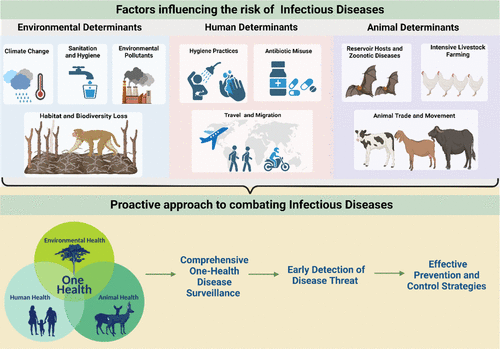Infectious diseases remain one of the most pressing health concerns in our interconnected world. From seasonal flu outbreaks to global pandemics, staying up-to-date with infectious diseases updates is essential for healthcare professionals, public health authorities, and the general public. Whether you’re a medical student, a researcher, or just a health-conscious individual, knowing the latest information can help you prevent, manage, and respond effectively to emerging health threats.
In this comprehensive article, we’ll explore the importance of infectious disease updates, current global concerns, prevention tips, and how to stay informed through trusted sources.
What Are Infectious Diseases?
Infectious diseases are illnesses caused by pathogens such as bacteria, viruses, fungi, or parasites. They can spread directly or indirectly from one person to another and sometimes from animals to humans (zoonotic transmission). Common infectious diseases include:
- Influenza (flu)
- COVID-19
- Tuberculosis
- HIV/AIDS
- Hepatitis
- Dengue and malaria
- Measles, mumps, and rubella
With global travel, urbanization, and climate change, new infectious diseases continue to emerge, making regular updates more important than ever.
Why Are Infectious Diseases Updates Important?
1. Timely Awareness Saves Lives

Rapid access to outbreak data helps individuals and communities respond with urgency, minimizing the spread of disease.
2. Helps Health Professionals Respond Effectively
Doctors, nurses, and emergency responders rely on updates to follow the latest treatment protocols, testing strategies, and vaccination guidelines.
3. Keeps Travelers Informed
Travelers can avoid high-risk areas or take preventive measures like vaccinations when they have access to the latest disease maps and travel advisories.
4. Guides Public Health Policy
Governments use data to implement safety measures like quarantines, vaccinations, or public health campaigns.
Top Infectious Diseases in 2025: Current Global Updates
Here are some of the most monitored infectious diseases as of 2025:
1. COVID-19 Variants
While global cases have declined, new variants still surface. Booster recommendations, mask policies, and travel advisories are updated regularly.
2. Avian Influenza (H5N1)
Bird flu outbreaks in Asia and Europe have raised concerns about animal-to-human transmission. Surveillance and poultry vaccination efforts are ongoing.
3. Dengue Fever
Increased cases in tropical and subtropical areas due to warmer climates. New dengue vaccines have recently been approved in some countries.
4. Mpox (Monkeypox)
Cases continue to be reported in non-endemic countries. Updated guidelines include vaccination strategies and isolation measures.
5. Tuberculosis (TB)
Drug-resistant TB remains a serious concern, especially in developing countries. WHO has released new treatment protocols.
How to Stay Updated on Infectious Diseases
✅ Follow Trusted Sources:
- World Health Organization (WHO)
- Centers for Disease Control and Prevention (CDC)
- National Institutes of Health (NIH)
- Local health departments
- HealthSciencesForum.com – A growing platform for infectious disease alerts and professional discussions
✅ Use Mobile Apps:
- WHO Disease Outbreak News
- CDC Health Alert Network
- HealthMap and Outbreaks Near Me
✅ Join Online Forums and Newsletters:
- Subscribe to email alerts
- Follow global health forums and blogs
- Participate in medical and academic discussions
Prevention Tips Based on Latest Infectious Disease Updates
🧼 Practice Good Hygiene

Regular handwashing, using hand sanitizers, and disinfecting surfaces can prevent many infections.
💉 Get Vaccinated
Follow the latest vaccination schedules and updates for flu, COVID-19, hepatitis, HPV, and more.
🧳 Travel Safely
Check travel advisories and get required vaccinations before visiting foreign countries.
😷 Use Protective Gear
In outbreak-prone areas, masks, gloves, and personal protective equipment (PPE) are crucial, especially in healthcare settings.
🍽️ Be Cautious with Food and Water
Prevent foodborne and waterborne illnesses by consuming clean and properly cooked food.
The Role of Infectious Disease Forums and Communities
Infectious disease forums are great resources for:
- Sharing real-time outbreak information
- Discussing unusual symptoms or new cases
- Providing expert commentary on emerging pathogens
- Guiding public behavior with factual, science-based responses
Communities like HealthSciencesForum.com allow medical professionals and the public to interact, ask questions, and receive timely updates on infectious threats worldwide.
FAQs About Infectious Diseases Updates
Q1: Why do infectious disease updates change frequently?
Pathogens evolve, and new outbreaks occur. Continuous monitoring helps update prevention and treatment strategies in real time.
Q2: How can I get alerts for local disease outbreaks?
Subscribe to your local health department’s alerts or use apps like HealthMap and CDC News.
Q3: Are infectious disease updates relevant to travelers?
Yes, they provide vital information about vaccination requirements, high-risk regions, and safety measures.
Q4: Can I trust online forums for infectious disease information?
Yes, but always cross-check with official health organizations like WHO or CDC before acting on advice.
Q5: What diseases are likely to rise in 2025 and beyond?
Climate change may increase the spread of vector-borne diseases like malaria, dengue, and Lyme disease, while global travel may accelerate viral outbreaks.
Q6: How can I help prevent the spread of infectious diseases?
Maintain hygiene, stay updated on vaccines, avoid close contact when sick, and educate others using verified information.
Conclusion
Staying informed with the latest infectious diseases updates is not just a responsibility for healthcare workers—it’s vital for everyone. With accurate, up-to-date knowledge, we can better protect ourselves, support public health efforts, and prepare for future outbreaks. Make it a habit to follow trusted sources, join discussions, and take action based on the latest developments in the world of infectious diseases. Together, we can build a safer, healthier future.




Leave a Reply